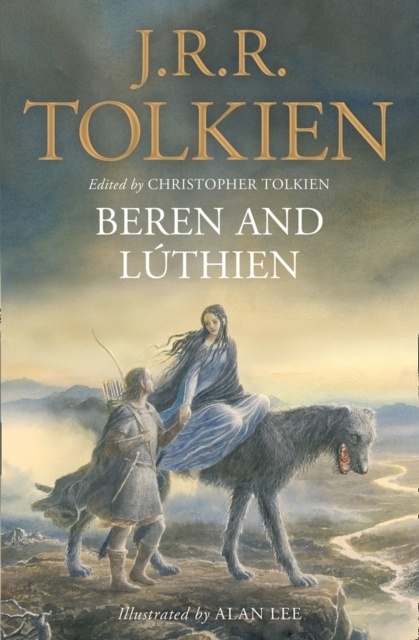Beren and Luthien

Editorial Harper Collins
Fecha de edición mayo 2018 · Edición nº 1
Idioma inglés
EAN 9780008214227
288 páginas
Libro
encuadernado en tapa blanda
Dimensiones 130 mm x 196 mm
Resumen del libro
Painstakingly restored from Tolkien's manuscripts and presented for the first time as a continuous and standalone story, the epic tale of Beren and Luthien will reunite fans of The Hobbit and The Lord of the Rings with Elves and Men, Dwarves and Orcs and the rich landscape and creatures unique to Tolkien's Middle-earth. The tale of Beren and Luthien was, or became, an essential element in the evolution of The Silmarillion, the myths and legends of the First Age of the World conceived by J.R.R. Tolkien.
Returning from France and the battle of the Somme at the end of 1916, he wrote the tale in the following year. Essential to the story, and never changed, is the fate that shadowed the love of Beren and Luthien: for Beren was a mortal man, but Luthien was an immortal Elf. Her father, a great Elvish lord, in deep opposition to Beren, imposed on him an impossible task that he must perform before he might wed Luthien.
This is the kernel of the legend; and it leads to the supremely heroic attempt of Beren and Luthien together to rob the greatest of all evil beings, Melkor, called Morgoth, the Black Enemy, of a Silmaril. In this book Christopher Tolkien has attempted to extract the story of Beren and Luthien from the comprehensive work in which it was embedded; but that story was itself changing as it developed new associations within the larger history. To show something of the process whereby this legend of Middle-earth evolved over the years, he has told the story in his father's own words by giving, first, its original form, and then passages in prose and verse from later texts that illustrate the narrative as it changed.
Presented together for the first time, they reveal aspects of the story, both in event and in narrative immediacy, that were afterwards lost.
Biografía del autor
John Ronald Reuel Tolkien nació el 3 de enero en Bloemfontein en el Estado Libre de Orange. A principios de 1895, su madre, agotada por el clima, regresó a Inglaterra con Ronald y su hermano pequeño, Hilary. Tras el fallecimiento de su padre, a causa de unas fiebres reumáticas, él y su familia se establecieron brevemente en Sarehole, cerca de Birmingham. Esta hermosa zona rural causó una honda impresión en el joven Ronald, y sus efectos pueden verse en su escritura y en algunos de sus cuadros. Mabel falleció en 1904, y los hijos quedaron a cargo del padre Francis Morgan, un sacerdote del Oratorio de Birmingham. En el King Edwardx{0026} x02019;s School, Ronald desarrolló su amor por las lenguas; más adelante inventaría sus propios idiomas. También por esta época conoció a Edith Bratt, con quien se casó en 1916. Cuando estalló la primera guerra mundial en 1914, Ronald era todavía un estudiante en Oxford. Se graduó al año siguiente, con un sobresaliente en Inglés y poco después fue enrolado como teniente en los Lancashire Fusiliers. En 1916 combatió en la batalla del Somme, pero cayó víctima de la fiebre de las trincheras y fue devuelto a casa como no apto para el servicio. Tolkien fue uno de los mejores filólogos de su época y gran parte de su vida laboral transcurrió en Oxford, primero como profesor de anglosajón y luego como profesor de lengua inglesa y literatura. Al mismo tiempo, en privado, trabajaba en el gran ciclo de mitos y leyendas que más adelante se publicaría con el título de El Silmarillion. Edith y él tuvieron cuatro hijos, y en parte fue para ellos por lo que escribió el cuento El Hobbit, publicado por Allen x{0026}amp; Unwin en 1937. Tuvo tanto éxito que el editor quiso tener en seguida una secuela, pero no fue hasta 1954 que apareció el primer volumen de la obra maestra de Tolkien, El Señor de los Anillos, con un éxito inmediato. Su enorme popularidad sorprendió a Tolkien. Ronald y Edith Tolkien se mudaron a Bournemouth al llegar a la vejez, pero cuando Edith murió en 1971, Tolkien regresó a Oxford. Ronald Tolkien falleció el 2 de septiembre de 1973, tras una breve enfermedad.








